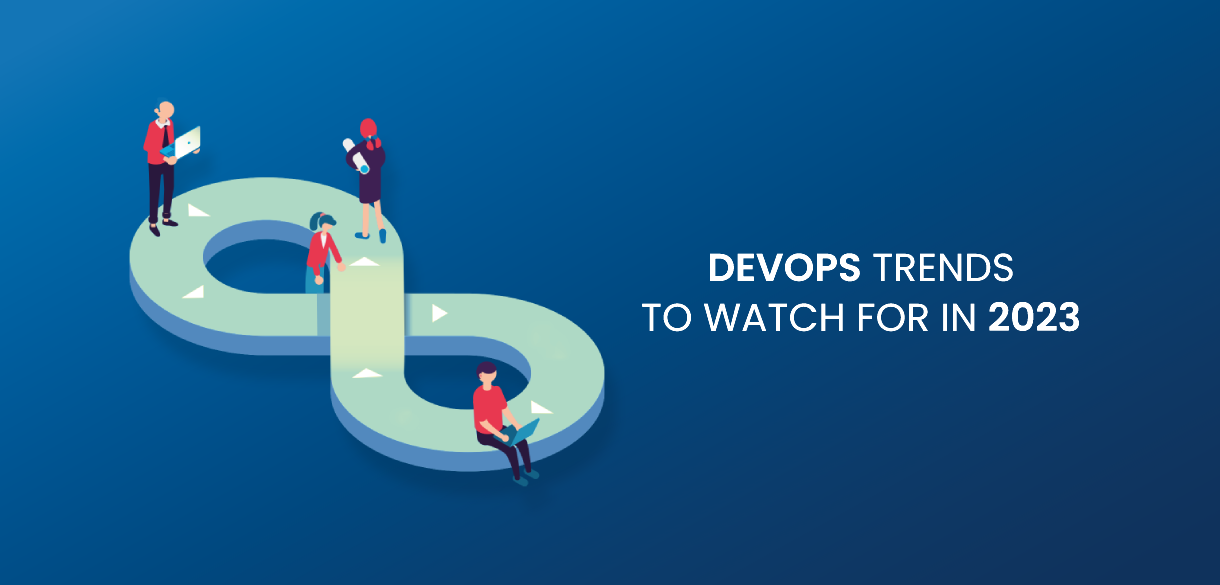There are a lot of new technologies that are gaining traction in the software development industry. There is a long range of widely used technologies, and DevOps continues to show its importance. DevOps has great potential and will surely alter the development industry, something that the industry fraternity has understood since its start. It is now widely accepted as a key methodology for development. The importance of DevOps in the digital transformation of an industry will undoubtedly bring about revolutionary developments.
In order to make the transition to DevOps, one must embrace open communication, transparency, higher quality, increased customer experience, and on-time project delivery. These advantages highlight the need for businesses to make the most of DevOps in order to promote more continuous communication, cooperation, integration, visibility, and transparency between teams working on IT development (Dev) and IT operations (Ops). In addition, caseless transformation, fresh techniques, and trends are making DevOps a thrilling field to work in both today and in the future.
In this blog, The most recent DevOps trends that will influence the future will be shown to us. Let's continue on.
1. Serverless Computing
Serverless computing has a lot of potential and might drastically alter how IT businesses run. Serverless is the best choice if you already use DevOps in your organisation or are thinking about doing so. Teams may concentrate on development and deployment by removing the risk and issues related to pipeline management with serverless computing in DevOps.
2. Chaos Engineering
Even though it is not a new concept, it persists in software development. The "chaotic" approach to development's primary objective is to train software developers to think in terms of eventual failure scenarios.
DevOps can deal with complexity with the aid of chaos engineering. Teams can design a solid application to support company operations with the aid of its integration into DevOps. Chaos engineering will be on the list of DevOps trends due to its tremendous advantages, including how it may empower businesses to deliver better customer experiences, save maintenance costs, and provide deeper insights into how applications are performing.
3. GitOps
An operational process and infrastructure built on code is known as GitOps. Version control, teamwork, CI/CD technologies, and other DevOps best practises are employed in this growing version of infrastructure as code and application development. GitOps, a relatively new addition to the DevOps workflow, aids teams in automating and managing infrastructure. Developer teams can manage infrastructure and software deployment using Git pull requests.
4. Multi Cloud Environments
Multi-cloud environments and DevOps work well together and are related in many ways. Together, they offer advantages and enhance one another's worth while boosting production. However, combining DevOps and multi-cloud is still unusual. The bulk of companies with a strong DevOps pipeline are still a long way off from implementing a multi-cloud setup.
5. Infrastructure as a Code
One of the main trends in DevOps is expected to be infrastructure as a code (IAC). This trend makes it easier to manage and provide infrastructure through automation as opposed to a human process. IAC is a core DevOps best practise that involves applying virtualization testing and continuous monitoring to the underlying code that directs the creation and management of your infrastructure.
6. DevSecOps
Development, security, and operations are referred to as DevSecOps. Security components are integrated into software development practises at each level up until a created solution fails to perform as expected. DevSecOps evolved from DevOps, hence moving toward DevSecOps implementation in the future will gain pace. DevSecOps incorporates security into the CI/CD pipeline, allowing development teams to respond quickly to some of the most pressing security issues of the day.
7. AI Driven
The future of DevOps, according to many experts, will be AI-driven. They think that as a tool for computation and analysis, artificial intelligence will eventually supplant the human mind. Because humans are unable of handling the enormous amounts of data and processing needed in daily operations, this will fundamentally change the way teams build, deliver, and manage apps. The software is mostly integrated with AI to increase its usefulness. AI has been discovered to help DevOps teams test, code, release, and monitor software more effectively. Implementing AI also enables companies to increase automation, spot and fix problems, and foster communication between various teams.
8. Observability
Observability will be one of the key trends in DevOps. The method and software tools that let Dev and Ops teams log, collect, correlate, and analyse substantial amounts of performance data from a distributed application in order to acquire real-time insights were mentioned.
Conclusion
No matter what the future holds for IT companies, DevOps will advance and have a big impact on the industry. Businesses and teams are continuously implementing DevOps technology and methodologies. According to the poll that was conducted, 50% of businesses claim to have been utilising DevOps for more than three years. We think this method ensures that a single integrated delivery function from requirements to production can effectively deliver greater business value to clients. The role of DevOps operations appears to be viewed as an essential software development process, and they are continually growing.




